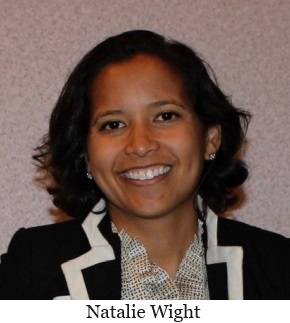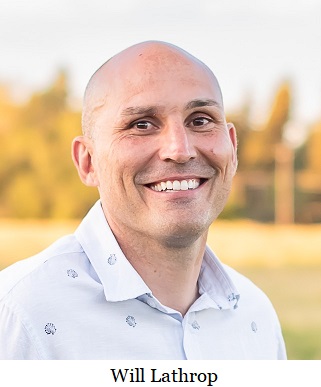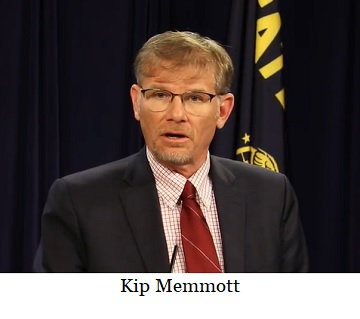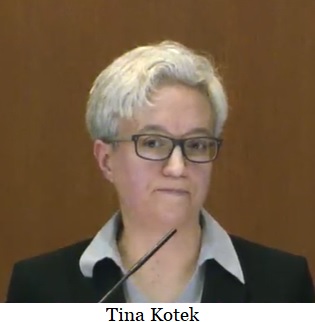
On this day, August 29, 1984, Oregon members of the Bhagwan Shree Rajneesh cult sprinkled salmonella bacteria on salad bar ingredients in local restaurants. Over 750 people were sickened.
Also on this day, August 29, 2020, a man was fatally shot as a caravan of Mr. Trump's supporters drove through Portland for a pro-Trump rally and clashed with counter protesters. Trump supporter, Aaron "Jay" Danielson, was shot and killed after he came downtown. On August 30, antifa supporter Michael Forest Reinoehl, the suspected shooter of Danielson, was shot and killed near Lacey, Wa., by law enforcement agents.
 Post an Event
Post an Event
| Benton County Republicans’ Private Fundraising Event, “Bent-on Boots and Bling” with Trey Taylor |
| Friday, September 5, 2025 at 5:00 pm |
| Featuring Trey Taylor
Music Private Event
Friday, September 5, 2025 5:00-5:30 pm VIP Reception
5:30-8:00 pm Heavy Appetizers,
Auction, Concert
Red: $750 VIP Reception
Front Row Table Sponsor
White: $500 Table Sponsor
Blue: $50 per person
Limited Seating. Get Yours Now!!!
Support Local
Dress up: Bling, Cowboy, Patriotic Benton County Republican
FUNDRAISER
www.BentonGOP.org
Get your tickets today at:
https://www.bentongop.org/event-details/benton-county-republicans-fundraiser/form
About Trey:
Trey is the youngest African American Man in Country Music History. The Denver Post wrote
"It's impossible to miss his enthusiasm. With a fondness for cowboy boots, gaudy colors and dazzling jewelry, Trey Taylor could stand toe to toe with any of the Pop, Country or even Rap
contemporaries of his generation.“ |
| Trysting Tree Golf Club, 34028 NE Electric Rd., Corvallis |
Most people just want to quit switching clocks
Legislators in Oregon, Washington, Idaho and California are planning to introduce bills this year to put their states on standard time year-round. Senator Kim Thatcher (R-Keizer) will introduce Senate Bill 1548 in Oregon.
“Oregonians have long-expressed their desire to stop changing the clock,” said Thatcher. “Some prefer keeping daylight saving time over standard time, and many don’t care which – they just want to stop changing the clock. Since daylight saving time is just not possible without congressional approval, and after waiting five years for Congress to approve a DST bill that passed here in Oregon in 2019, standard time has become a common-sense choice for 2024 and doesn’t need approval from Congress. Research also shows standard time is the healthier choice! I’m grateful to have the privilege of working with our surrounding states as they, too, introduce bills to ditch the switch!”
In Washington,
Senate Bill 5795, introduced by Senator Mike Padden, received a public hearing in the Senate State Government and Elections Committee.
“If there is one issue most people agree on, it’s the dislike of moving their clocks from standard time to daylight saving time in the spring and then back to standard time in the fall,” said Padden of Spokane Valley. “There have been scientific studies connecting several health problems with switching back and forth between standard time and daylight saving time, including greater risks of heart attacks and more frequent workplace injuries. This bill would allow Washington to finally ‘ditch the switch’ by keeping us on standard time permanently.”
In California, Assemblyman Tri Ta of Westminster has introduced
Assembly Bill (AB) 1776 and is awaiting a committee hearing. “California voters are tired of disruptive time changes that have outlived their usefulness,” said Ta. “I am honored to join this multi-state coalition, and I know that this will make a difference to promote the health of the people of California and across the American West.”
A D V E R T I S E M E N T

A D V E R T I S E M E N T
The principal co-author of AB 1776, Senator Roger Niello of Fair Oaks, shared, “I am glad to be collaborating with representatives of multiple states to make standard time permanent.” He continued, “Different legislative processes and timelines can be challenging, but we are all working together to make Pacific Standard Time permanent so that our constituents can avoid the disruptive process of adjusting their clocks twice a year and adapting to the time change.”
“In Idaho our standard time bill has been drafted as RS30948 and will move to the House State Affairs Committee within the next 10 days, where we are confident of its passage,” said Idaho state Representative Joe Alfieri of Coeur d’Alene.
--Donna Bleiler| Post Date: 2024-01-27 11:08:29 | Last Update: 2024-01-26 18:02:49 |
“Her passion for Western issues will be a great addition to the board”
Oregon Farm Bureau Federation President Angi Bailey was elected to represent the Western Region on the American Farm Bureau Federation Board of Directors. The Western region consists of 13 states and holds five seats on the AFBF board. The board plays a pivotal role in shaping federal policy related to agriculture and natural resources.
"With the depth and breadth of challenges facing Oregon farmers and ranchers, including issues surrounding ag labor, the farm bill, water and drought, and livestock predation just to name a few, this board seat secures Oregon and the West a voice at the table and gives us a national platform to highlight the unique challenges we face,” OFBF President Bailey said. “I will never take this responsibility lightly. I look forward to advocating for Oregon, and the rest of the West, in this new and exciting way.”
“Angi’s election to the AFBF board is an exciting and well-deserved opportunity! Her knowledge of and passion for Western issues and grassroots advocacy will be a great addition to the board,” commented OFBF Board Member Matthew Brady, who represents Lane and Douglas counties and was also present at the AFBF Annual Business meeting in Salt Lake City, UT.
A D V E R T I S E M E N T

A D V E R T I S E M E N T
Bailey’s election marks the first time in eight years that Oregon has had a seat on the national board – formerly held by past OFBF President Barry Bushue. Bailey was also appointed to represent the West on the American Farm Bureau Foundation for Agriculture Board. Angi Bailey is the first woman representing the OFBF elected to the AFBF board.
--Staff Reports| Post Date: 2024-01-26 16:50:00 | Last Update: 2024-01-25 17:27:09 |
Oregon State Forester conducting HCP, FMP listening sessions
Oregon Governor Tina Kotek has backed herself in a corner. The Governor has identified a severe housing shortage with a goal to build 36,000 homes each year. That would double the number of homes built in Oregon per year. The Governor’s Housing Production Advisory Council identified many barriers to meeting her goal, but bypassed the most obvious, the lack of timber.
The Oregon State Forester Cal Mukumoto is holding three more listening sessions to hear final thoughts from the public prior to making a recommendation to the Board of Forestry on a path forward for completing the draft Western Oregon State Forests
Habitat Conservation Plan (HCP) and Western Oregon State
Forest Management Plan (FMP) for 640,000 acres of state-managed forestlands in western Oregon. It seems Mukumoto has learned nothing from the failed mapping project. It should be apparent that the past six years in development of a 70-year HCP plan misses revenues needed by over 30% costing rural counties roughly $18 million per year, and exceeds habitat acres needed by 150%, according to Oregon Forests Forever.
The HCP is intended to protect endanger species, but in doing so it endangers the housing industry preventing harvesting and active forest management on about 40% of Oregon's state forests decreasing timber harvest by 50 percent. The HCP involves prescribed fire (Rx) work burning off debris to reduce fire risk, but at the same time, damaging timber that could have been removed to build homes. The Governor has another problem in justifying these burns that give off carbon pollutants where harvesting would sequester the CO2 in the wood to build homes.
On the private side, the state has allowed the sale of 200,000 acres to a Chinese man associated with the CCP. Was this in the plan when Speaker Kotek exempted exporting timber to China from the Corporate Access Tax (CAT)? The restrictions on timber forces Governor Kotek to bring in timber from Europe and Canada leaving counties in lack of revenue it has depended on. Rural leaders have calculated this will eliminate police, teachers, firefighters, health care workers and other critical services for already under-served Oregonians leaving them vulnerable to the infiltration of cartels - yet another problem the Governor made as Speaker that she seems without the ability to control.
Governor Kotek also took a hit when Oregon State University rejected management of the Elliott State Research Forest due to the constraints of HCP. Washington State is now considering a land trust, what Elliott Forest was, to fund their child care centers with a working forest. "Working forest" seems to be the key to managing a productive forest, which is lacking in HCP and why OSU rejected management.
Oregon’s management of state forests is guided by forest management plans that are adopted by the Board of Forestry (OAR 629-035-0030). Forest management plans are designed to provide a full range of social, economic, and environmental outcomes that provide the “greatest permanent value” to all Oregonians (OAR 629-035-0020). The draft HCP is how ODF wants to ensure compliance with the federal Endangered Species Act while implementing the forest management plan.
Has ODF reversed the order of application? The FMP needs to achieve the "greatest permanent value" to all Oregonians (not species) before HCP. The Endangered Species Act directs states to “seek to conserve endangered species and threatened species…in furtherance of the purposes of this Act.” Is the HCP really necessary? "Seek" and "furtherance" is 85% of the way, not 150% overkill.
The National Forest Service has recently switched from their 10-year wildfire strategy, which includes mechanically thinning fire-prone forests, to a top-down D.C. approach amending all 128 forest land management plans to “conserve and steward” old-growth forests through a single Environmental Impact Statement prohibiting commercial logging, which will further impact rural communities. Under the Northwest Forest Plan, three-quarters of national forest land in Oregon is off-limits to routine active forest management, even though wildfires have burned millions of acres including endangered species’ habitat.
"ODF’s total purpose for HCP is to support the overall goal of the updated FMP by improving certainty around both ESA compliance and timber harvests." However, the decrease in timber harvest is a poor definition of certainty. The current approach of compliance through “take avoidance” has been costly and complex that needed new management. This approach requires extensive species surveys, resulting in shifting protections that, over time, may impact the quality and durability of the habitat provided, resulting in fewer acres available for harvest.
A D V E R T I S E M E N T

A D V E R T I S E M E N T
A reprieve for the Governor’s affordable housing objective is a $78 billion bipartisan tax package unveiled by Congressional negotiators this week that includes a provision that its backers hope will spur home building nationwide. The Tax Relief for American Families and Workers Act of 2024 would expand the Low-Income Housing Tax Credit program, which offers incentives for building homes for lower-income households. A Northwest
nonprofit testified that Oregon’s home prices have increased 40-50% over the last three years.
Yet another stumbling block for the Governor is the recent closure of a sawmill in Banks. This creates concerns for Oregon’s timber industry. Hampton Lumber announced plans to close its Banks sawmill that affect 58 employees in a city of less than 2,000 people. The mill has operated since 1961.
ODF is seeking input on HCP and FMP during two in-person listening sessions, and one virtual listening session.
- Eugene on January 25 at the Lane Events Center, Meeting Room #4, W. 13th Ave., doors open for signup at 5 p.m., with the meetings starting at 5:30 p.m.
- Astoria on January 31 at The Loft at the Red Building, 20 Basin St.
doors open for signup at 5 p.m., with the meetings starting at 5:30 p.m.
- Virtual meeting on January 29 at 1 p.m. Advance registration is required. More information on the listening sessions is available here.
If attending is not possible, written comments must be received by February 2. Email comments to forestryinformation@odf.oregon.gov or mail them to State Forester Cal Mukumoto, Building B, 2600 State St., Salem, OR 97310.
--Donna Bleiler| Post Date: 2024-01-26 11:13:11 | Last Update: 2024-01-26 17:20:47 |
“It is appalling to discover the OHA has key data which they are hiding from the public”
State Representative E. Werner Reschke (R-Southern Oregon), who serves as a member on the Task Force on Alcohol Pricing and Addiction Services, issued the following statement today in response to The
Oregonian article titled: Oregon never publicized a study it funded that found higher beer, wine taxes would barely stem heavy drinking.
“As a member of the newly formed Alcohol Pricing and Addiction Services Task Force, I do not want to see people suffer from alcohol abuse and addiction; moreover, I want to find ways to prevent others from traveling down that road.”
“It is appalling to discover the Oregon Health Authority has key data concerning this issue which they are not only hiding from the public -- but from this task force. Keeping such information secret erodes my confidence that OHA will provide the Task Force all the data in an unbiased way. Our Task Force is supposed to weigh all the facts to make informed and effective recommendations to the legislature. It appears that OHA is placing their thumb on the scale to manipulate the legislature into choosing a predetermined outcome.”
A D V E R T I S E M E N T

A D V E R T I S E M E N T
In 2023, the Oregon Legislature passed
HB 3610, which formed a Task Force on Alcohol Pricing and Addiction Services. Its goal is to study and report to the Legislative Assembly by September 15, 2024, on alcohol addiction and alcohol addiction prevention; distribution of resources for alcohol addiction treatment; current overall funding for alcohol addiction treatment programs; cost of alcohol addiction to state; benefits and drawbacks of imposing taxes on beer and wine; and additional funding options for alcohol addiction treatment. Representative Reschke was appointed as one of the four legislative non-voting members.
--Staff Reports| Post Date: 2024-01-25 15:54:26 | |
Graduation rates don’t reflect a difference between proficiency testing and class achievements.
The Oregon Department of Education (ODE) put out a press release touting the class of 2023 as achieving the second highest graduation rate ever in Oregon. The statewide graduation rate for the class of 2023 is 81.3 percent, tying the 2022 class as the second highest graduation rate ever recorded in Oregon. While the overall rate held steady, some student groups reached all-time highs for graduation including former English Learners (87.6%) and Migrant students (81.6%). The biggest negative impact were students in Foster Care dropping 1.5% to 46.9% graduation rate.
While 81.3%, 37,700 students earned a diploma, 8,672 students did not graduate, a long hill for Governor Kotek to meet her campaign goal of 90%. Tina Kotek campaigned that it was important to her for “setting high standards and high expectations for all Oregon students.” Her
website listed education priorities, lowering the 2011 statutory bar to 90% graduating by 2027.
Does a diploma demonstrate proficiency in reading, writing, and math? In August 2021, Oregon Governor Kate Brown signed
Senate Bill 744 eliminating the requirement for high school graduation requirements for 2022, 2023, and 2024. Prior to the pandemic it had reached 82%, then dropped to 80.6% in 2021. So the elimination of testing hasn’t made a significant difference. Oregon was one of 15 states that ended graduation test requirements. Eight other states have replaced graduation test requirements with a variety of end-of-course tests that factor into student course grades and the right for students to use an alternatives if they fail.
Besides the standard diploma, students with a documented history of not maintaining grade level achievement due to a learning, instructional, or medical barrier can earn a modified diploma or an extended diploma. They must have “demonstrated the inability to meet the full set of academic content standards for a high school diploma with reasonable modifications and accommodations.” It qualifies them for federal financial aid in college but probably will not be accepted into the military.
Oregon students still have to pass their high school classes and earn 24 credits to graduate, which is one of the highest in the nation. Still, every legislative session discusses increasing the mandatory credit requirements. Every credit required reduces the flexibility for students to pursue their interests in the direction of a possible career. ODE has recommended changes to the state's graduation requirements, including permanently ending the requirement to show testing proficiency in reading, writing, and other skills on top of credit-bearing coursework in those subjects.
A D V E R T I S E M E N T

A D V E R T I S E M E N T
Another educational goal was passed into law in 2011 was the
“40-40-20? (Bachelor’s/Associate’s/high school) goal for 100% of adult Oregonians to have at least a high school diploma or equivalent by 2025. By 2019, 7% of Oregonians had less than high school education, but the pandemic seems to have swept that goal under the carpet too. The current graduation rates would indicate that goal is a dream that will never happen.
Dr. Charlene Williams, ODE Director, states, “Each diploma represents an inspiring step forward for a student, their loved ones, and their community. With impressive grit and resourcefulness, they worked their way through the jarring and isolating impacts of the pandemic to earn their education. We need to maintain high expectations and provide high levels of support that will lead to academic excellence for all of our students. Each and every child from birth through 5th grade must be set up for success in learning to read and reading to learn and be provided opportunities to find their path to graduation success and their dream career.”
Governor Kotek would like to see more targeting of resources, “such as career and technical education and supporting English Language Learners. This targeted approach to success is working for our students, so let’s do more of that, and I hope lawmakers support summer learning investment in the 2024 session.”
--Donna Bleiler| Post Date: 2024-01-25 11:57:07 | Last Update: 2024-01-25 16:43:10 |
Website Details Val Hoyle’s Corrupt Dealings with La Mota
Oregon Fourth Congressional District Candidate Monique DeSpain has held a press conference to ask what
Congresswoman Val Hoyle is hiding from the public in the La Mota Scandal and to request that U.S. Attorney for the District of Oregon Natalie K. Wight expand the current investigation by her office into La Mota and the resigned ex-Secretary of State Shemia Fagan be expanded to include Hoyle.
“Today, I unveiled a
detailed reporting of Val Hoyle’s corruption and
my call to the US Attorney for the District of Oregon to investigate her immediately,” said Monique DeSpain. “I contend that Congresswoman Val Hoyle has disqualified herself from further public service in Congress as our representative because she has demonstrated a pattern of corruption, obstruction, and deceit for at least the past three years.”

“Citizens of the 4th congressional district, including myself, are greatly concerned about the numerous news reports indicating connections between Congresswoman Val Hoyle, La Mota, and Shemia Fagan, the subject of a current investigation,” DeSpain added. “It is obvious La Mota’s corrupt tentacles extend far beyond former Secretary of State Shemia Fagan. No one should be above the law -- any and all illegality involving La Mota and ENDVR must be rooted out before Oregonians’ trust in their government can be restored.”

“To this end, I have sent a
letter to the U.S. Attorney for the District of Oregon, Natalie K. Wight, to urge her to expand the scope of USDOJ’s investigation into Fagan and La Mota or launch an independent investigation on similar grounds into Congresswoman Hoyle and her role in the award of a taxpayer grant to the La Mota-linked non-profit named ENDVR.”
Wight was appointed by President Biden in June 2022 and confirmed by the Senate a few months later.
“There have been countless news articles over the past year and a half covering Congresswoman Val Hoyle’s deceit, corruption, and blatant stonewalling, but now voters can go to
WhatsValHiding.com to view a comprehensive timeline of her corruption and sign a petition calling for the US Department of Justice to formally investigate her role in the scandal.”
A D V E R T I S E M E N T

A D V E R T I S E M E N T
Monique DeSpain is a retired U.S. Air Force Colonel, mother of twin boys, and public policy advocate who resides in Eugene, Oregon. She is a candidate for the Republican nomination for Oregon’s 4th Congressional District in a bid to unseat incumbent Congresswoman Val Hoyle in 2024
--Staff Reports| Post Date: 2024-01-25 10:01:00 | Last Update: 2024-01-25 18:57:03 |
Hwang is calling Republican voters in Oregon to action
In an announcement which some observers say may be in violation of the current understanding of the Oregon Republican Party (ORP) bylaws, the
Chairman of the state party, Justin Hwang has
formally given his endorsement of Donald J. Trump for President of the United States in the upcoming November 2024 Election.
"As the Chairman of the Oregon Republican Party, I am prevented by our bylaws from endorsing a candidate in any contested Republican race until after the primary. While I acknowledge and respect the authority of those bylaws, I also firmly believe in the fundamental American right to individual free speech. Therefore, I, Justin Hwang, as an Oregonian and small business owner, am today exercising my First Amendment right to freely express my personal unwavering and enthusiastic support for former President Donald J. Trump in his bid for reelection."
Hwang explained further, "In close consultation with the Oregon Republican Party’s dedicated legal team, as well as the Central and Executive Committees, I plan to explore revisions to our bylaws that will respect and protect the principle of free speech for every member of our organization."
A D V E R T I S E M E N T

A D V E R T I S E M E N T
"This endorsement is not just a formality—it is a call to action," said Hwang. "I invite and encourage all Republicans, all conservatives, and all like-minded citizens who are concerned about the deterioration of our country under the current administration, to join me in this endorsement.
Hwang concluded, "Together, let’s support a leader who shares our values and vision of what America can be. We need a leader who will lead us toward a future of peace, prosperity, and security for this great nation. Let’s stand together, united in our effort to see Donald J. Trump triumphantly return to the presidency of these United States."
Oregon will hold it's primary election on May 21st. Technically, Trump is yet to be officially determined as the party nominee, although he still seems have a commanding lead over Nikki Haley, his only remaining GOP opponent.
--Ben Fisher| Post Date: 2024-01-25 09:53:18 | Last Update: 2024-01-25 18:57:23 |
Proposal doesn’t solve Oregon’s drug addiction crisis
In Tuesday’s Joint Committee on Addiction and Community Safety Response, Democrats unveiled their plan to address Measure 110. Republicans have also proposed several key pieces of legislation.
“Above all, I am saddened by the Democrats’ lack of interest to do what is necessary to end the drug addiction crisis, which is killing people young and old every single day. They are instead choosing to listen to special interest activists and pursue an omnibus bill reduced to window dressing,” said Senate Republican Leader Tim Knopp (R-Bend). “While Democrats kick the can down the road, we will continue to put forward bold solutions that will stop the drug crisis in its tracks.”
“The proposal we saw today is one chalked full of farcical fixes which will work about as well as the drug treatment hotline. Measure 110 has proven that voluntary addiction treatment does not work and keeps people chronically addicted. Oregonians overwhelmingly agree that we must scrap this naïve approach, but the Democrats’ proposal keeps the status quo in place,” said Representative Christine Goodwin (R-Canyonville). “Oregonians deserve better than this weak proposal. It will do almost nothing to save lives, clean up our streets, and restore safety to our communities.”
“Oregonians have made it abundantly clear: we must reestablish hard drug use as a class A misdemeanor so that rehabilitation treatment can be required. The current system does not include such power and a low-level class C misdemeanor only provides 30 days in jail as an alternative. This is nowhere near the amount of time needed to address addiction,” said Representative Kevin Mannix (R-Keizer). “Our current system is not compassionate. People are hurting. The Legislature has a responsibility to step up and meet this challenge.”
A D V E R T I S E M E N T

A D V E R T I S E M E N T

“Clearly Democrats in the legislature haven’t walked the streets to see the crisis Measure 110 has caused," said House Republican Leader Jeff Helfrich. “The
Republican bill restores accountability, ushers addicts into treatment, and makes our streets clean and safe again – none of which will be achieved with the majority’s proposal. While people suffer, the majority party ignores Oregonians’ calls for bipartisan action, choosing instead to pander to radical special interests with a bill that solves nothing. Oregonians have demanded real solutions, and that is what House Republicans will continue to strive for.”
Candidate for Oregon Attorney General and former prosecutor, Will Lathrop, rebuked politicians in Salem for failing to propose a real solution to Oregon’s failed Measure 110 and instead hiding behind House Bill 4002, a half-hearted proposal.

“Unfortunately, Salem politicians have failed to listen to law enforcement, local governments, and Oregonians across our state who are demanding meaningful solutions to Oregon’s failed Measure 110. Instead, these same politicians have opted to hide behind their political ideologies with an inadequate bill that fails to respond to the historical crisis on our streets,” said Will Lathrop.
“What was hailed as revolutionary change, is now known to be an unmitigated disaster shrouding Oregon in a state of crisis. Despite calls from our law enforcement community, treatment experts, and local jurisdictions to replace Measure 110 with real accountability measures that get people into treatment and traffickers off the street, HB 4002 is a half-measure designed to provide cover to a political class determined to continue the status quo,” added Lathrop
With less than two weeks before the 2024 Legislative Session convenes, AG candidate Will Lathrop offered Oregonians some words of encouragement while challenging legislators to return to the drawing board.
“It’s not too late for legislators in Salem to reject band-aid fixes and work with law enforcement and addiction service providers to deliver lasting solutions. Oregonians are relying on our elected politicians to act with urgency to shift the tide of crime and addiction in our communities and give Oregonians real hope for change,” concluded Lathrop.
--Staff Reports| Post Date: 2024-01-23 15:31:59 | Last Update: 2024-01-23 16:38:51 |
OHCS now tasked with administering millions to homeless
As the COVID-19 pandemic turned into a lockdown of businesses and schools by Governor Kate Brown, thousands of Oregonians were threatened with eviction. As their income diminished, they struggled to pay rent in an economy that had stalled. In December 2021 the Legislative Housing Committee requested an audit of the Emergency Rental Assistance Program (Oregon ERA).
Oregon ERA was created to provide federal funding to help keep Oregonians in their homes. Oregon’s housing agency, Oregon Housing and Community Services (OHCS), was charged with administering the program under enormous pressure to get millions of dollars out the door as quickly as possible.
OHCS was able to distribute $426 million in emergency rental assistance as of June 2023. But according to the Oregon Audits Division
audit, the framework under which this occurred came with substantial risk. A year into the pandemic in 2020, OHCS agrees with auditors that, like many other government and non-governmental
organizations, the agency was unprepared for the magnitude and scale of multiple emergencies. Oregon ERA suffered from the rushed implementation of new software and a fragmented customer service system resulting in application processing delays and communications challenges that frustrated consumers and local partners.
Oregon Secretary of State LaVonne Griffin-Valade said in a statement, “The urgency with which OHCS acted to distribute rental assistance during a global crisis is laudable. As auditors, it’s our job to ensure state agencies properly account for how they spend public money. I encourage OHCS to work speedily to implement the recommendations in this report in preparation for future emergencies.”
According to the audit, "While the urgency brought by this situation was understandable, it’s still critically important agencies implement adequate financial controls to ensure funds are distributed to the people who should be receiving them. Money that is spent out of compliance with federal guidelines runs the risk of being clawed back by the federal government. Fraud was a major risk for Oregon ERA." According to multiple community action agencies, they denied approximately $37 million requested through 1,813 potentially fraudulent applications.
OHCS employed limited oversight of the funds and, in its haste, skipped critical controls, including over financial accounting and contract administration. These same control weaknesses were highlighted by financial auditors in the Statewide Single Audit released earlier this year. In fact, the severity and pervasive aspect of the control weaknesses led financial auditors to issue an adverse opinion for the program — the first from the division in more than 25 years.
While the urgency brought by this situation was understandable, it’s still critically important agencies implement adequate financial controls to ensure funds are distributed to the people who should be receiving them. Money that is spent out of compliance with federal guidelines runs the risk of being clawed back by the federal government. Fraud was a major risk for Oregon ERA; according to multiple community action agencies, they denied approximately $37 million requested through 1,813 potentially fraudulent applications.
“There is no doubt OHCS, like all of Oregon government, was working under unprecedented emergency conditions during the pandemic,” said Audits Director Kip Memmott. “As auditors, it’s our job to ensure public monies are being spent in accordance with program guidelines and properly accounted for. It’s extremely concerning that OHCS is unable to verify whether millions of dollars went to the Oregonians who needed and deserved this money the most.”
A D V E R T I S E M E N T

A D V E R T I S E M E N T
Auditors have multiple recommendations for OHCS, among them:
- Better prepare for future emergencies given the agency’s important role under Oregon’s emergency management framework, including conducting an after-action review of Oregon ERA with local partners;
Improve internal controls over contract monitoring;
- Improve internal controls over reporting program outcomes, especially when it comes to reporting the number of Oregon ERA applications paid, households assisted and dollars spent;
- Improve internal controls over detecting and preventing fraud; and
- Continue efforts to obtain timely, complete, and quality client data to better understand and respond to Oregon’s housing needs.
Oregon ERA ended on June 2023. However, the lessons learned from this program are still applicable. OHCS has now been tasked with administering millions of dollars to address Oregon’s ongoing homelessness crisis, a major priority for Governor Tina Kotek. This can be troublesome since
OHCS disagrees with the audit on the after-action process including systems oversight of benefit measurement, and they lacked reporting to ensure systems are functioning as expected.
Other recommendations were only partially agreed to being correct. OHCS must implement audit recommendations and apply lessons learned, if Oregonians can be reassured OHCS can successfully and properly accounted for the Governor’s homeless program.
--Donna Bleiler| Post Date: 2024-01-19 13:19:01 | Last Update: 2024-01-19 15:22:40 |
State of Emergency will support access to federal resources for response
Governor Tina Kotek declared a statewide emergency due to the severe ice storm that impacted counties across the state. This declaration comes following an assessment of needs and subsequent requests from multiple counties as they enter the 6th day of severe impacts as a result of the storm. The declaration will support counties to respond and recover from damages as a result of the storm.
“Thousands of people across the state have been impacted by the storm, including power outages, lack of transportation, and an array of safety concerns that come with severe weather,” Governor Kotek said. “The state has been working with counties as they assess needs, including critical federal resources that can be unlocked by a statewide emergency. I declared a state of emergency in Lane County on Tuesday, and now we are heeding the call from additional counties to escalate.”
Emergency response starts at the local level. As resources are exhausted, cities and counties turn to the state for additional support. Not all resources, such as those the state has been providing since the start of the storm, require a state emergency declaration. The Oregon Department of Emergency Management and the Governor’s Office have been in frequent communication with impacted counties as they continuously assess their needs, anticipate emerging issues, problem-solve, and seek to fill gaps.
A D V E R T I S E M E N T

A D V E R T I S E M E N T
State emergency declarations are a critical tool that support counties getting access to federal resources they may be entitled to through the Federal Emergency Management Agency as well as other resources. Assets include, but are not limited to, federal infrastructure support for highways, telecommunications, and power system recovery, which responders can access more easily with a statewide emergency declaration.
Currently, Multnomah County, Lincoln County, Washington County, Hood River County, and the Confederated Tribes of Siletz Indians have declared a local state of emergency and have been receiving support from the state, including from OEM, the Oregon Department of Human Services, the Oregon Health Authority and the Oregon Department of Transportation.
--Staff Reports| Post Date: 2024-01-19 10:07:15 | Last Update: 2024-01-19 10:40:35 |
Now is a good time to check your voter registration information
In keeping with past practice, Oregon Secretary of State LaVonne Griffin-Valade released a preliminary list of candidates to appear on the 2024 Democratic and Republican Primary ballots for Oregon’s May Primary election. Most notably, the Republican primary ballot is projected to have former President Donald Trump.
“The 2024 Primary Election is just four months away,” said Secretary Griffin-Valade. “I want to remind Oregonians to check their voter registration information at
Oregonvotes.gov. If you’ve moved, changed your name, or just want to make sure you’re registered, you can check your info in just a few minutes at
Oregonvotes.gov.”
The preliminary lists for the 2024 Democratic and Republican Primary ballots are as follows, in alphabetical order:
Democratic Candidates:
- Joseph Biden
- Dean Phillips, and
- Marianne Williamson.
Republican Candidates:
- Ron DeSantis
- Nikki Haley, and
- Donald Trump.
ORS 249.078 (1)(a) states that a Secretary of State may place the name of a candidate on a major party Presidential primary ballot if the Secretary, in their “sole discretion, has determined that the candidate’s candidacy is generally advocated or is recognized in national news media.”
To decide if candidates meet the statutory criteria, the Secretary is relying on national polls and including all candidates who have the support of a minimum of 1% of party voters. Candidates may also access the ballot by nominating petition as provided in ORS 249.078 (1)(b). The deadline to submit already verified signatures of nominating petition is March 14, 2024.
A D V E R T I S E M E N T

A D V E R T I S E M E N T
The Secretary intends to review the list of candidates using then-current data and issue a final list after Oregon’s candidate filing deadline has passed and before providing the list to county clerks for inclusion on the primary ballot. Names will be removed from the list if a candidate suspends their campaign or otherwise publicly announces that they are no longer running for President in the 2024 election. Other changes to the list will be made at the direction of the courts, if necessary.
--Staff Reports| Post Date: 2024-01-18 16:02:13 | Last Update: 2024-01-19 10:44:54 |
Bill aims to address housing shortage that is driving up cost of living
Oregon Governor Tina Kotek has pulled back on her budget priorities for the 2024 legislative short session, or has she? She is introducing only one bill, but expressed that her bill, SB 1537 is separate from the
Housing Production Advisory Council (HPAC) recommendations, which Governor Kotek created through
Executive Order 23-04 last year to develop long-term strategies for ramping up home construction across Oregon, and is expected to request more of the Governor’s wish list.
Governor Kotek’s bill, Senate Bill 1537 (Legislative Concept 19), proposes housing production with $500 million funding pared down from $600 million she
proposed in December for housing and homelessness. That list included another $247.2 million for things like shelters, rent assistance, addiction treatment, child care, overtime for ODOT during the winter, and property tax for state buildings in Salem. Those items aren't off the table, just not in the Governor's bill.
The Governor is focusing on housing in SB 1537. Key provisions include:
- Housing Accountability and Production Office - Creates the Housing Accountability and Production Office (HAPO) to support housing production in local communities with a more definitive structure and process to address complaints, concerns, and issues from local governments and developers about compliance with state housing law. This office will enhance opportunities to collaborate with local governments in lieu of enforcement actions.
- Land Supply - Provides a one-time tool for cities in need of land and affordable housing to add land for housing to their urban growth boundary (UGB). Any land added would need the consent of the property owner and could only be urban reserve, non-resource land, or exception land – not high value farm or forest land except land in urban reserves already designated for future urban development. A city must meet land and affordability eligibility metrics in order to qualify to use this tool.
- Housing Affordability - Requires a portion of new development to be affordable. Within any expansion areas, 30% of all housing units must be legally restricted for affordable housing. Affordability requirements exist in over 800 jurisdictions and 25 states, but most programs require between 10-20% of units as affordable. A 30% requirement in Oregon would be one of the strongest requirements in the country. Oregon has a critical need for guaranteed affordability, as existing land within UGBs (outside of Portland) has no affordability requirement.
- Climate-Friendly Homes - Funds grants for new affordable housing construction to incorporate energy-efficient design, reduce energy costs for low-income residents, and stabilize operational costs for owners. These incentives will help reduce the energy burden for low-income Oregonians across the state.
- Funding for Housing Production Tools - Includes a $500 million investment package from existing state resources requested by Governor Kotek. Here is an initial breakdown of that funding:
- Housing infrastructure financing: $200 million
- Moderate-income housing financing: $200 million
- Site acquisition: $40 million
- Climate-friendly incentive funding: $20 million
- Site mitigation and readiness funding: $10 million
- Local housing planning technical assistance funding: $10 million
- Local housing infrastructure planning capacity: $5 million
- Housing Accountability and Production Office: $5 million.
“Decades of underbuilding have left Oregon with a severe housing shortage that is driving up rents, home prices, and worsening our homelessness crisis,” Governor Kotek said. “People that are ready to transition out of homelessness struggle to find housing. Meanwhile, employers – both public and private – in Oregon struggle to hire due to a lack of workforce housing for rent or purchase, harming local economies across the state. That’s why SB 1537 is my top priority in the short session, and I look forward to working with legislators to make progress this year.”
Bills, including SB 1537 (LC 19), will be publicly posted on the Oregon legislative website before the session starts February 5.
--Donna Bleiler| Post Date: 2024-01-17 20:04:45 | Last Update: 2024-01-17 22:14:37 |
Read More Articles

















 “Citizens of the 4th congressional district, including myself, are greatly concerned about the numerous news reports indicating connections between Congresswoman Val Hoyle, La Mota, and Shemia Fagan, the subject of a current investigation,” DeSpain added. “It is obvious La Mota’s corrupt tentacles extend far beyond former Secretary of State Shemia Fagan. No one should be above the law -- any and all illegality involving La Mota and ENDVR must be rooted out before Oregonians’ trust in their government can be restored.”
“Citizens of the 4th congressional district, including myself, are greatly concerned about the numerous news reports indicating connections between Congresswoman Val Hoyle, La Mota, and Shemia Fagan, the subject of a current investigation,” DeSpain added. “It is obvious La Mota’s corrupt tentacles extend far beyond former Secretary of State Shemia Fagan. No one should be above the law -- any and all illegality involving La Mota and ENDVR must be rooted out before Oregonians’ trust in their government can be restored.”
 “To this end, I have sent a letter to the U.S. Attorney for the District of Oregon, Natalie K. Wight, to urge her to expand the scope of USDOJ’s investigation into Fagan and La Mota or launch an independent investigation on similar grounds into Congresswoman Hoyle and her role in the award of a taxpayer grant to the La Mota-linked non-profit named ENDVR.”
“To this end, I have sent a letter to the U.S. Attorney for the District of Oregon, Natalie K. Wight, to urge her to expand the scope of USDOJ’s investigation into Fagan and La Mota or launch an independent investigation on similar grounds into Congresswoman Hoyle and her role in the award of a taxpayer grant to the La Mota-linked non-profit named ENDVR.”





 “Clearly Democrats in the legislature haven’t walked the streets to see the crisis Measure 110 has caused," said House Republican Leader Jeff Helfrich. “The Republican bill restores accountability, ushers addicts into treatment, and makes our streets clean and safe again – none of which will be achieved with the majority’s proposal. While people suffer, the majority party ignores Oregonians’ calls for bipartisan action, choosing instead to pander to radical special interests with a bill that solves nothing. Oregonians have demanded real solutions, and that is what House Republicans will continue to strive for.”
“Clearly Democrats in the legislature haven’t walked the streets to see the crisis Measure 110 has caused," said House Republican Leader Jeff Helfrich. “The Republican bill restores accountability, ushers addicts into treatment, and makes our streets clean and safe again – none of which will be achieved with the majority’s proposal. While people suffer, the majority party ignores Oregonians’ calls for bipartisan action, choosing instead to pander to radical special interests with a bill that solves nothing. Oregonians have demanded real solutions, and that is what House Republicans will continue to strive for.”
 “Unfortunately, Salem politicians have failed to listen to law enforcement, local governments, and Oregonians across our state who are demanding meaningful solutions to Oregon’s failed Measure 110. Instead, these same politicians have opted to hide behind their political ideologies with an inadequate bill that fails to respond to the historical crisis on our streets,” said Will Lathrop.
“Unfortunately, Salem politicians have failed to listen to law enforcement, local governments, and Oregonians across our state who are demanding meaningful solutions to Oregon’s failed Measure 110. Instead, these same politicians have opted to hide behind their political ideologies with an inadequate bill that fails to respond to the historical crisis on our streets,” said Will Lathrop.






